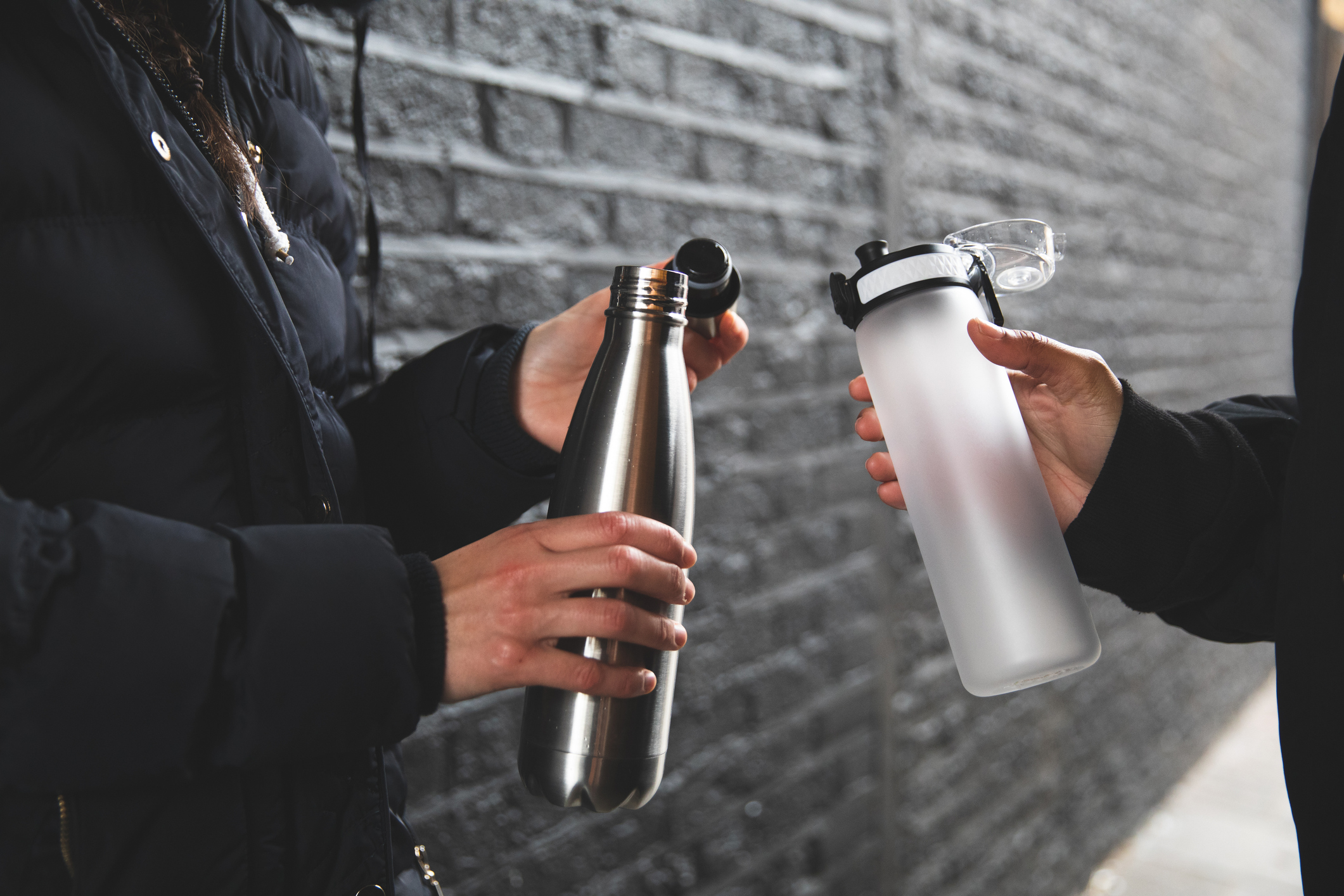How to improve your memory
It’s never too late to boost your gray matter. Discover how to improve your memory and keep your brain sharp

Get the world’s most fascinating discoveries delivered straight to your inbox.
You are now subscribed
Your newsletter sign-up was successful
Want to add more newsletters?

Delivered Daily
Daily Newsletter
Sign up for the latest discoveries, groundbreaking research and fascinating breakthroughs that impact you and the wider world direct to your inbox.

Once a week
Life's Little Mysteries
Feed your curiosity with an exclusive mystery every week, solved with science and delivered direct to your inbox before it's seen anywhere else.

Once a week
How It Works
Sign up to our free science & technology newsletter for your weekly fix of fascinating articles, quick quizzes, amazing images, and more

Delivered daily
Space.com Newsletter
Breaking space news, the latest updates on rocket launches, skywatching events and more!

Once a month
Watch This Space
Sign up to our monthly entertainment newsletter to keep up with all our coverage of the latest sci-fi and space movies, tv shows, games and books.

Once a week
Night Sky This Week
Discover this week's must-see night sky events, moon phases, and stunning astrophotos. Sign up for our skywatching newsletter and explore the universe with us!
Join the club
Get full access to premium articles, exclusive features and a growing list of member rewards.
Wondering how to improve your memory? We don’t blame you! Whether you can’t remember where you placed your keys or your mind has gone blank trying to recall a name, everyone experiences moments of memory loss from time to time.
As we age our memory declines. Genes play a role – but so do our lifestyle choices. Research suggests that regular exercise, a healthy diet, keeping blood sugar, cholesterol and blood pressure in check, and not smoking, can protect memory. In fact, drinking more water may even boost your short-term memory. Check out our guide to the best water bottles to stay hydrated for maximum health.
As well as healthy lifestyle choices, living a mentally active life and challenging the mind with cognitive exercises is also crucial for keeping your mind sharp and preventing memory loss.
“Your brain has numerous functions that control and govern your daily life,” Dr Deborah Lee of Dr Fox Online Pharmacy told Live Science. “Memory is regarded as a higher, or executive brain function. To have a good memory, your brain needs to be in good brain health. Many aspects of health and wellbeing affect brain and memory function.”
Although there’s no assured way to prevent memory loss, there are ways to keep the brain healthy. Here are six ways to sharpen and improve your memory.
1. Focus on a healthy diet
One very important aspect of brain health and function is diet. There’s mounting evidence that the MIND diet – which is a cross between the Mediterranean diet and the DASH diet – can help to prevent Alzheimer’s. “Those who have followed the MIND diet have been shown to perform better at cognitive skills and have a lower risk of cardiovascular disease,” Dr Lee explained.
One study, published in Alzheimer’s & Dementia, found that the MIND diet reduced the risk of Alzheimer’s by 53%.
Get the world’s most fascinating discoveries delivered straight to your inbox.

2. Practice meditation
Our brains are overstimulated, so it’s important to step back and do something that relaxes your mind. “People with greater mental wellbeing tend to have better memory and cognitive thinking skills than those with poorer mental health,” Dr Lee said.
Meditation also can help brain function as it helps relieve stress, slows the brain’s aging processes and supports processing functions. And research supports this too. One review, published in Annals of the New York Academy of Sciences, found that a variety of meditation techniques may be able to offset age-related cognitive decline.
3. Drink plenty of water
Dehydration is bad for your short-term memory, mood, attention and mental performance. Water is an essential nutrient – and makes up nearly two-thirds of the body. It is necessary for all aspects of bodily functions, including the regulation of temperature and the distribution of oxygen. According to the National Institutes of Health, adequate water is required for the brain to function properly.
A meta-analysis of 33 studies, published in Medicine & Science in Sports & Exercise, found that dehydration corresponded to a 2% reduction in body mass, which was associated with significant deterioration in cognitive performance. The message? Drink up!

- Related: Lemon water benefits: are there any?
4. Get moving
“Your physical health is closely aligned with your mental health. Those who participate in regular exercise tend to have better brain function than those who do not,” Dr Lee explained.
“Exercise enhances the development of new neuronal connections – neuroplasticity. It also increases levels of brain-derived neurotrophic growth factors (BDNF) – a substance that is especially important for the growth and organization of new brain connections in older people.”
One study, published in the Proceedings of the National Academy of Sciences, found that pedaling on one of the best exercise bikes for 10 minutes increased activity in the brain’s hippocampus – which is involved with remembering events and facts and creating new memories.
5. Get a good night’s sleep each night
Experts believe that getting the recommended seven to eight hours of sleep per night is vital for good brain health. New research, published in the journal Current Biology, indicates that interrupted Rapid eye movement (REM) sleep can interfere with the area of the brain responsible for processing memories overnight.
To improve the quantity and quality of sleep:
- Go to bed and get up at the same time each day.
- Avoid using your mobile or computer in bed or at least an hour before bed.
- Exercise during the day.
- Avoid caffeinated drinks, alcohol and heavy meals before bed.
- Try reading a book or listening to calming music before you go to bed.
6. Improve your gut microbiome
If you want to improve your memory, Dr Lee suggests improving your gut microbiome. “We now know there are complex interactions between the trillions of bacteria in the gut and the brain neurons. It may be that altering the microbiome could improve the ability for brain development and learning,” she said.
Ways to keep your gut bacteria healthy and balanced include:
- Eat enough gut-friendly prebiotic foods that are high in fiber, including fruit and vegetables like onions, garlic, Jerusalem artichokes and whole grains.
- Eat fermented probiotic foods, such as kombucha, sauerkraut and kimchi.
- Cut down processed, refined carbohydrates and high sugar foods.
Do memory exercises work?
Brain exercises are important in preventing memory loss and keeping your mind sharp. “It’s certainly true that the brain, like everything else in the body, works on a ‘use it or lose it’ basis,” Dr Lee said. “And also, people who use their thinking skills regularly, cope better with everyday life.”
There are a variety of exercises that can stimulate and help preserve brain function. “Anything that challenges the mind, such as problem solving, memory and recall, is good. This might be crossword puzzles, Sudoku, jigsaws, memory games, card games or video games,” she said.
According to one study, published in the Frontiers in Psychology, learning a second language improves brain function at any age.
When should you seek help for memory loss?
If you’re concerned about memory loss, make an appointment to speak to your doctor. There are a variety of conditions, apart from Alzheimer’s that may cause memory problems, including medications and vitamin B-12 deficiency.
According to the Mayo Clinic, memory loss is one of the first or more-recognizable signs of dementia. Dr Lee said that other early signs include:
- Memory problems
- Confusion
- Getting lost
- Unable to find the right words
- Difficulty with spatial awareness
- Losing interest and not wanting to do things you usually enjoy
- Personality changes, mood swings or aggression
References
Bak, T. H., Vega-Mendoza, M., & Sorace, A. (2014). Never too late? An advantage on tests of auditory attention extends to late bilinguals. Frontiers in Psychology, 5. https://doi.org/10.3389/fpsyg.2014.00485
Gard, T., Hölzel, B. K., & Lazar, S. W. (2014). The potential effects of meditation on age-related cognitive decline: a systematic review. Annals of the New York Academy of Sciences, 1307(1), 89–103. https://doi.org/10.1111/nyas.12348
Memory loss: When to seek help. (2019, April 19). Mayo Clinic. Retrieved April 22, 2022, from https://www.mayoclinic.org/diseases-conditions/alzheimers-disease/in-depth/memory-loss/art-20046326
Morris, M. C., Tangney, C. C., Wang, Y., Sacks, F. M., Bennett, D. A., & Aggarwal, N. T. (2015). MIND diet associated with reduced incidence of Alzheimer’s disease. Alzheimer’s & Dementia, 11(9), 1007–1014. https://doi.org/10.1016/j.jalz.2014.11.009
Suwabe, K., Byun, K., Hyodo, K., Reagh, Z. M., Roberts, J. M., Matsushita, A., Saotome, K., Ochi, G., Fukuie, T., Suzuki, K., Sankai, Y., Yassa, M. A., & Soya, H. (2018). Rapid stimulation of human dentate gyrus function with acute mild exercise. Proceedings of the National Academy of Sciences, 115(41), 10487–10492. https://doi.org/10.1073/pnas.1805668115
Wassing, R., Lakbila-Kamal, O., Ramautar, J. R., Stoffers, D., Schalkwijk, F., & van Someren, E. J. (2019). Restless REM Sleep Impedes Overnight Amygdala Adaptation. Current Biology, 29(14), 2351–2358.e4. https://doi.org/10.1016/j.cub.2019.06.034
WITTBRODT, M. T., & MILLARD-STAFFORD, M. (2018). Dehydration Impairs Cognitive Performance: A Meta-analysis. Medicine & Science in Sports & Exercise, 50(11), 2360–2368. https://doi.org/10.1249/mss.0000000000001682
Karen Gordon is a freelance writer and web content editor with a special interest in health, and is based in the United Kingdom, As well as contributing to Live Science Karen has written for a variety of other publications, including NetDoctor, Patient.co.uk, Good Housekeeping, Prima, Cosmopolitan, Harper’s Bazaar and others.
 Live Science Plus
Live Science Plus











